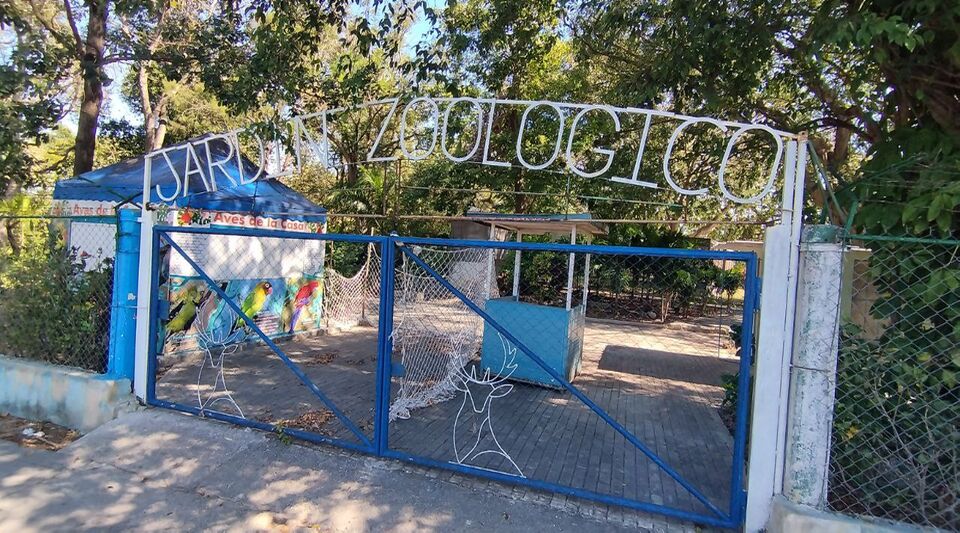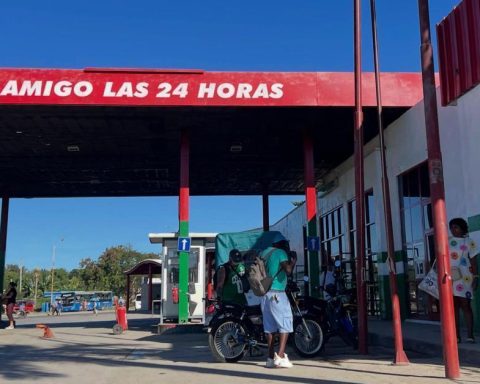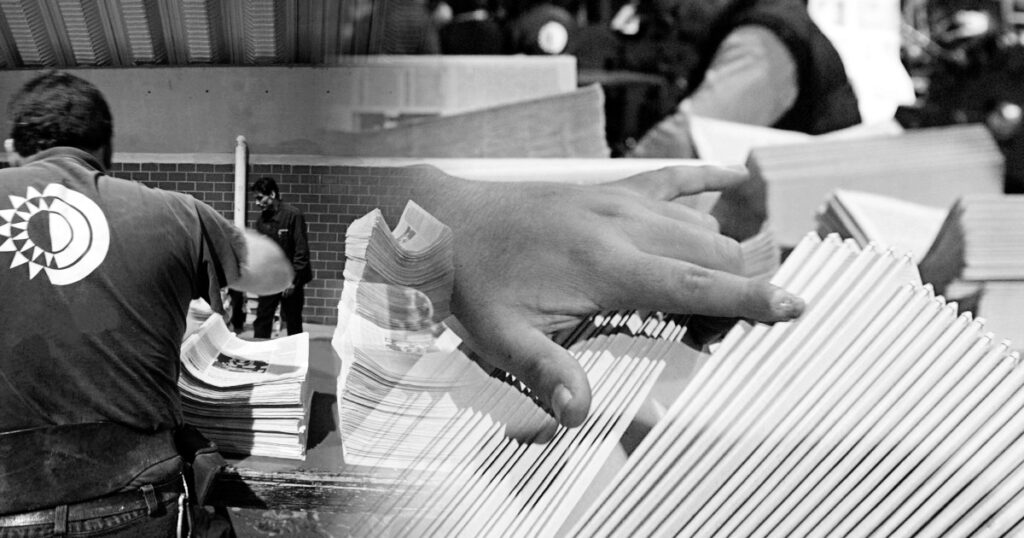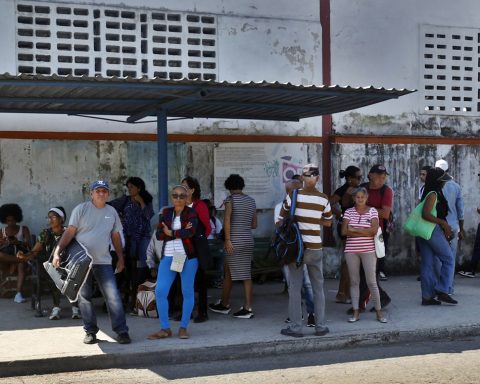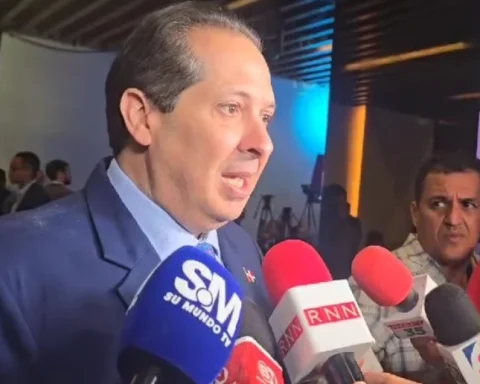“You get closer and it looks nice, a green rectangle, but it immediately jumps out that it’s a place with many hidden things,” is how María Elena Valdivia, designer and neighbor of the 26th Avenue Zoo in Havana, sums up the place where lions roar and He has detected the first case of bird flu in Cuba. If someone had thought of the worst point on the Island to terrorize the virus, reality has just surpassed it.
This Thursday the main entrance to the park remained closed, although the movement of workers could be seen inside. A faded sign with a painted zebra welcomes but not a trace of the line of families with children that usually exists on the outskirts. The park remains under quarantine since the H5N1 avian influenza subtype was detected in wild birds at the site.
“This has been a health problem for our community for a long time and with this we are very concerned,” summarizes Valdivia, who lives a few meters from the bus stop near the main entrance of the zoo. “I grew up in this neighborhood, but as a child I went to the Zoo many times and I have some pleasant memories, but living nearby is something else, this place must be closed.”
The designer lists the problems. “Animals go hungry, they are overcrowded and they lament all the time, we must live 24 hours a day with roars, bellows and bleats that are pitiful, it is very difficult to sit at the table in your house and eat while hearing those sounds of beings that they’re starving. I can’t anymore.”
“This has been a health problem for our community for a long time and with this we are very concerned”
Overcrowding and the presence of mammals close to the areas intended for collection birds or in contact with wild birds increase the risk posed by the Havana zoo of a jump of the virus between species. The disease, detected for the first time in 1996, has spread among free and captive birds, but in recent decades it has also affected humans.
Migratory birds carry the four strains of this influenza that has already reached Central and South America. Avian influenza is still rare in people “but we cannot assume that it will always be so and we must prepare for any change in the situation,” warned the director general of the World Health Organization (WHO), Tedros Adhanom Ghebreyesus. Between 2003 and March 2022, 864 human cases have been registered, and 456 deaths.
Recently the alarms went off even more when it was confirmed in Peru that the death of hundreds of sea lions was due to the virus and the researchers warn that contagion between mammals may already be taking place. “What happened in Peru is the first case in all of Latin America of massive mammal mortality,” acknowledges Víctor Gamarra-Toledo, an ornithologist and researcher from the Andean country.
A space like the Havana zoo could be the propitious scenario for this spread between species and a possible contagion to humans. The authorities have not updated the situation again and insist that everything is under control, but the traditional secrecy of the official Cuban media generates more suspicion than certainty. In previous epidemics, the reality has far exceeded the information disseminated by the national media.
A few years ago it was detected at the 26th Avenue Zoo. the presence of the giant African snail. After being closed during the covid-19 pandemic, the park reopened with a panorama of malnourished animals, without water, with their habitats full of dirt and excrement, in addition to the prominence of the snail, one of the 100 most invasive species internationally. .
“People focused on the covid and the mask, but here we have also had to live with the african snailno one tells that but it eats everything”; says a neighbor near the Zoo who has seen how his small garden with succulents and also banana plants has ended up devoured by beings “slow but overwhelming like the elephant”.
Apes confined in tiny cages, employees who profit by taking baby lions to be photographed, workers who sell everything from peacock feathers to hyena droppings, highly demanded in certain religious rituals, the 26th Avenue Zoo is an old-fashioned place with cloistered animals and lack of hygiene.
However, fears that the virus will affect national poultry production seem much less in a country with production decimated by the lack of animal feed, the deterioration of farms and the growing importation of chicken meat from nations in the region. especially the United States. The “disease” that seems to have wiped out the island’s poultry industry does not spread among birds but rather is born from the inefficiency of the system.
Overcrowding and the presence of mammals close to the areas destined for collection birds or in contact with wild birds increase the risk posed by the Havana zoo of a jump of the virus between species.
The main fears with the current situation are focused, then, on the impact on wild birds and the possible zoonotic jump, a scenario that would aggravate the delicate situation of the Public Health system with a deficit of professionals, drugs and a very deteriorated infrastructure.
This week the private sellers of trinkets and toys have disappeared. The Zoo, a state-run monopoly, is a frequent target of resellers who take advantage of its increasingly poor subsidized offers to buy and then offer those same products to families who came to visit the premises. But between the closure and the fear of contagion they seem to have discouraged visitors from even going near their facilities.
“It is curious because you can hear the song of the birds a lot, most of them are passing through or are wild and they like this area with many trees in the middle of the city,” explains another neighbor whose patio is barely separated by a street from the back of the zoo “This sound has always been there, but now with the advent of bird flu, you notice it more because you don’t know what will happen to the birds.”
From one of the trees whose branches reach out from the zoo and almost touch the roof of this resident’s house, a nimble mockingbird leaps and sings its song, a melody of hope in the midst of worry.
________________________
Collaborate with our work:
The team of 14ymedio He is committed to doing serious journalism that reflects the reality of deep Cuba. Thank you for accompanying us on this long road. We invite you to continue supporting us, but this time becoming a member of our newspaper. Together we can continue transforming journalism in Cuba.
